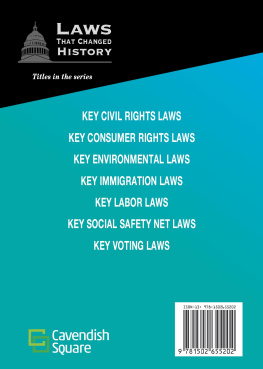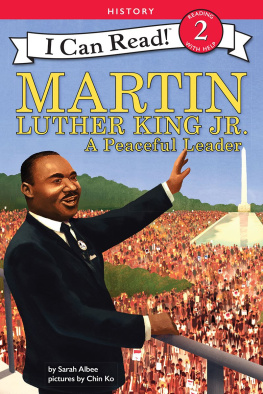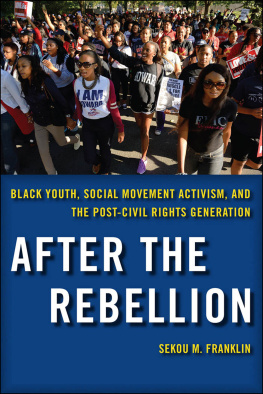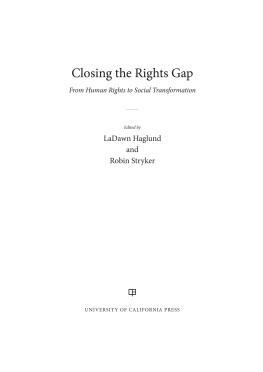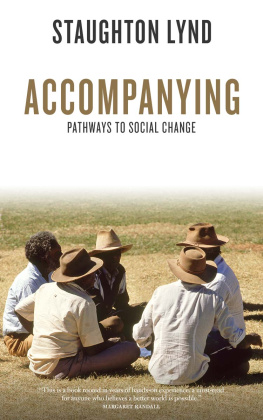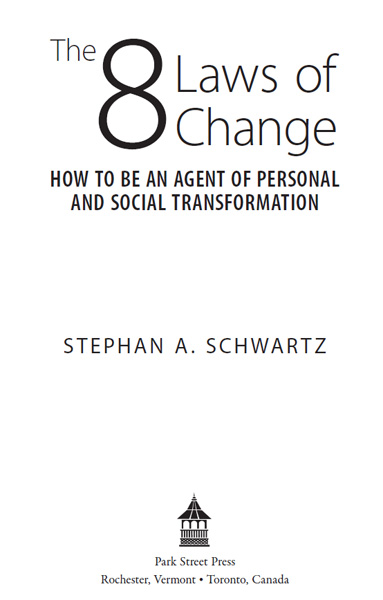Stephan A. Schwartz - The 8 Laws of Change: How to Be an Agent of Personal and Social Transformation
Here you can read online Stephan A. Schwartz - The 8 Laws of Change: How to Be an Agent of Personal and Social Transformation full text of the book (entire story) in english for free. Download pdf and epub, get meaning, cover and reviews about this ebook. year: 2015, publisher: Inner Traditions/Bear & Company, genre: Romance novel. Description of the work, (preface) as well as reviews are available. Best literature library LitArk.com created for fans of good reading and offers a wide selection of genres:
Romance novel
Science fiction
Adventure
Detective
Science
History
Home and family
Prose
Art
Politics
Computer
Non-fiction
Religion
Business
Children
Humor
Choose a favorite category and find really read worthwhile books. Enjoy immersion in the world of imagination, feel the emotions of the characters or learn something new for yourself, make an fascinating discovery.

- Book:The 8 Laws of Change: How to Be an Agent of Personal and Social Transformation
- Author:
- Publisher:Inner Traditions/Bear & Company
- Genre:
- Year:2015
- Rating:5 / 5
- Favourites:Add to favourites
- Your mark:
The 8 Laws of Change: How to Be an Agent of Personal and Social Transformation: summary, description and annotation
We offer to read an annotation, description, summary or preface (depends on what the author of the book "The 8 Laws of Change: How to Be an Agent of Personal and Social Transformation" wrote himself). If you haven't found the necessary information about the book — write in the comments, we will try to find it.
2016 Nautilus Silver Award
Shares the stories of people who have changed history, such as Martin Luther King Jr., Ben Franklin, and Gandhi, detailing how they used the 8 laws of change
Based on more than 16 years of scientific and historical research as well as the authors own experiences during the Civil Rights movement
Explores research in the fields of medicine, neuroscience, biology, and quantum physics to reveal the science of how the 8 laws of change work
Inspired by his own powerful experiences during the Civil Rights movement in the 1960s and other social movements in the 70s, 80s, and 90s, Stephan Schwartz spent 16 years researching successful social transformations, uncovering the science and the patterns behind them all. He found that there are three ways to create social change. The first is the advancement of technology and science. The secondchange compelled by physical poweris almost always coercive and violent and, for those reasons, not long lasting. The third avenue of change he discoveredthe most successful and enduringis one brought about by something so subtle it is often not taken seriously: small individual choices based on integrity and shared intention.
Revealing how the dynamics of change are learnable, Schwartz explains the 8 laws of individual and social behavior that can enable any person or small groupeven ordinary people without great wealth, official position, or physical powerto bend the arc of history and create successful lasting transformation. He shares the stories of individuals who have actually changed history, such as Martin Luther King Jr., Benjamin Franklin, Mother Teresa, and Mahatma Gandhi, detailing how they implemented the strategies and tactics of the 8 laws to achieve their success.
The author explores research in the fields of medicine, neuroscience, biology, and quantum physics to reveal the science of how these laws of change work. He explains why compassionate and life-affirming changes have the most enduring impact and shows how each of the 8 laws cultivates a sense of beingness in the individual, empowering your integrity and connecting you to something greater than yourselfthe key to lasting change on the personal, societal, and global levels.
Stephan A. Schwartz: author's other books
Who wrote The 8 Laws of Change: How to Be an Agent of Personal and Social Transformation? Find out the surname, the name of the author of the book and a list of all author's works by series.




